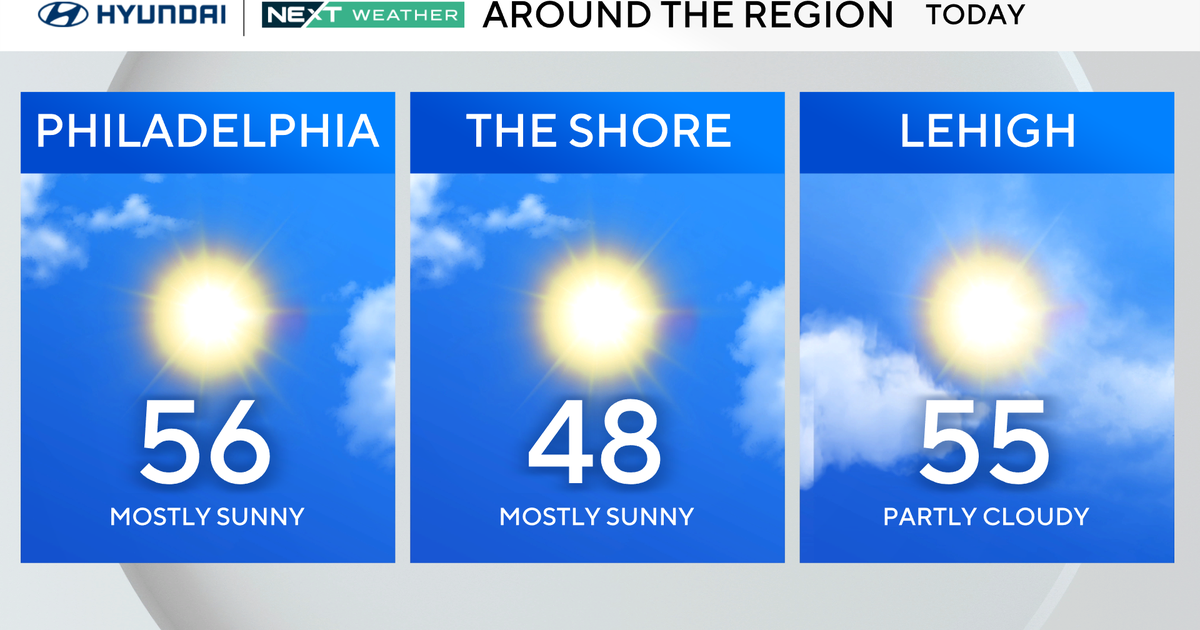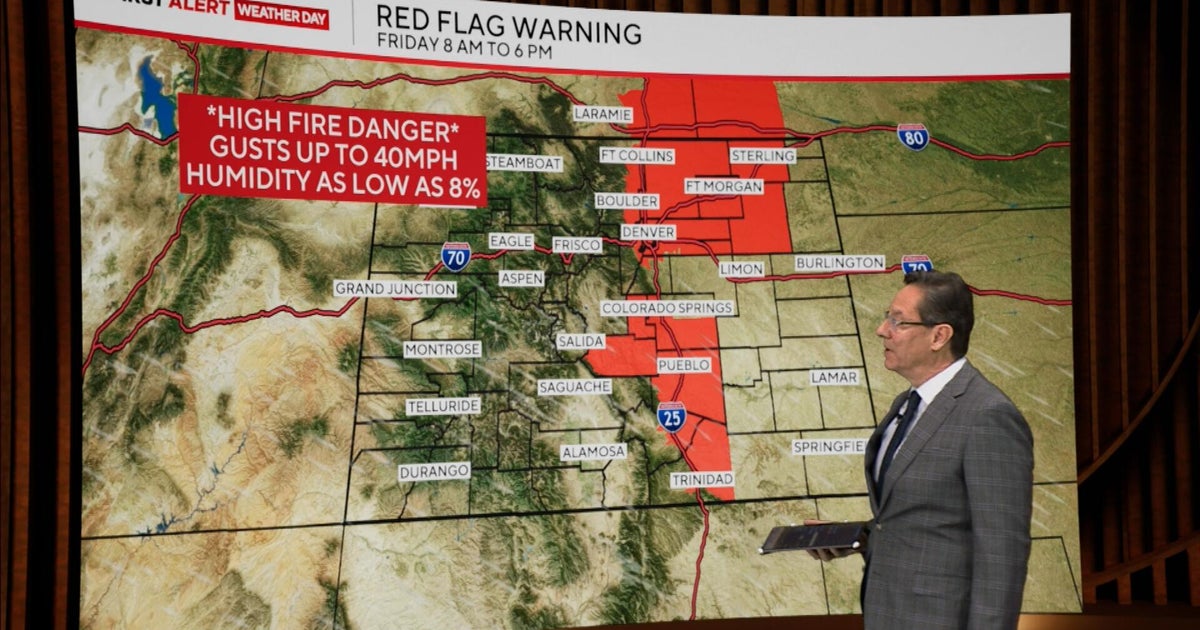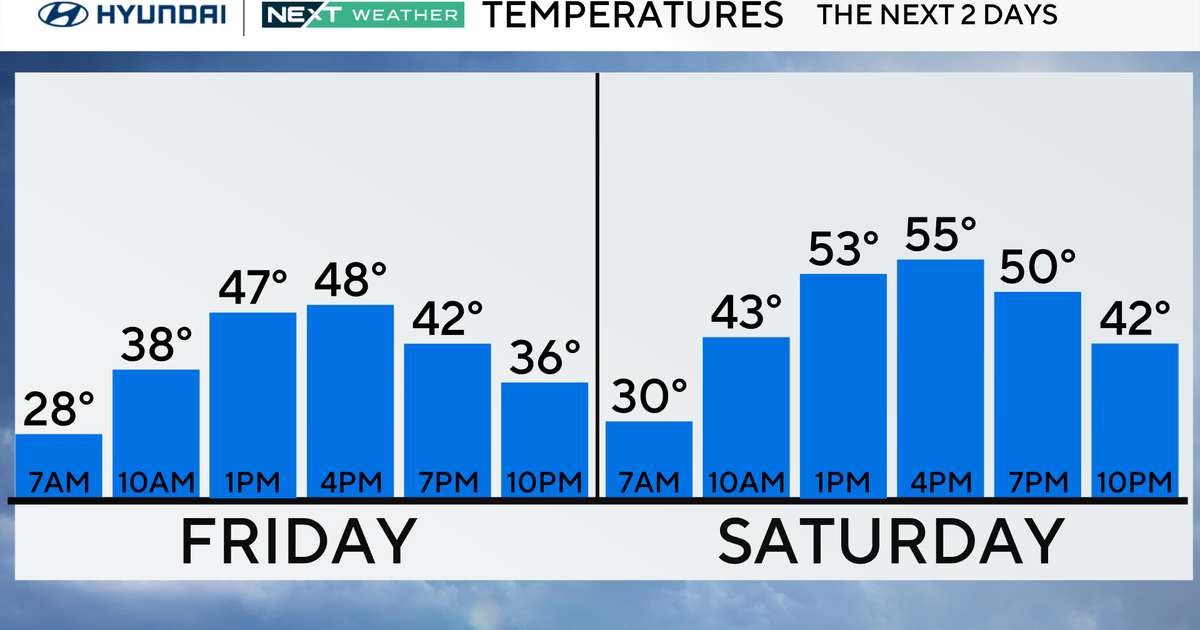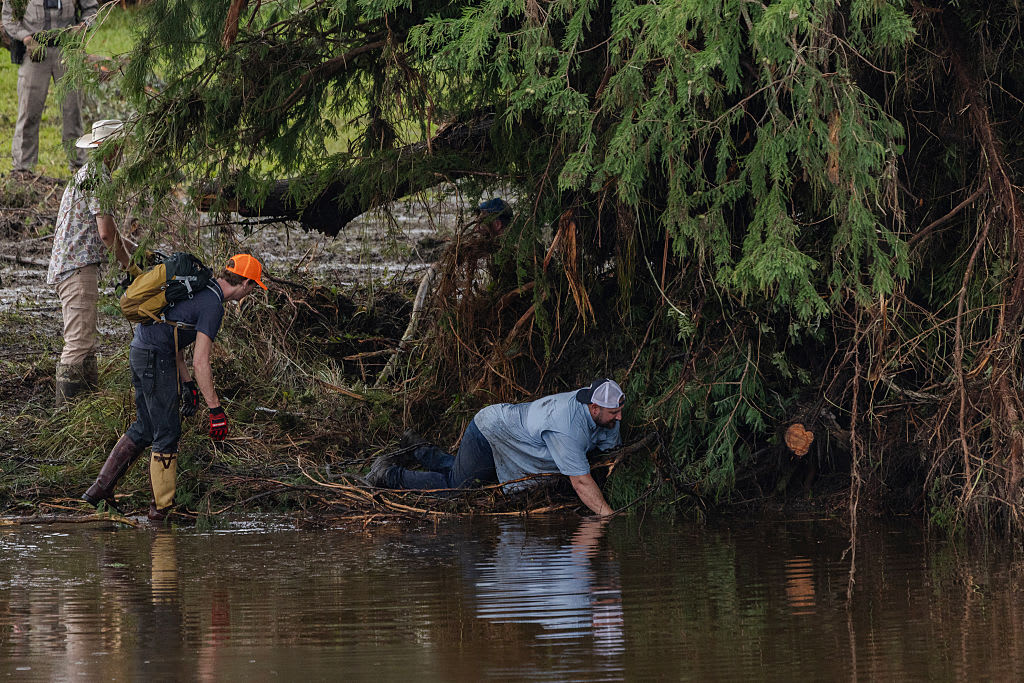Torrential rain hits Southeast as forecast warns of major spring flooding
A week of torrential downpours is underway across the Southeast and lower Mississippi Valley. With saturated ground and swollen rivers, the three-month outlook calls for the likelihood of major river flooding this spring in some of the same areas hard hit by last year's historic floods.
The combination of a stalled front, strong Pacific jet stream and near-record atmospheric moisture levels Monday prompted NOAA's Weather Prediction Center to warn of the "high risk" of life-threatening flash flooding.
On Monday alone, up to a half a foot of rain is expected in areas from Jackson, Mississippi to Birmingham, Alabama. The rain is expected to continue on and off all week, with another burst of heavy rainfall on Thursday.
This deluge comes on top of already saturated soil from a unseasonably wet season so far. Since January 1, the Southeast has received 2 to 3 times the normal rainfall, with various areas (in dark green below) receiving their wettest stretch on record.
With spring runoff just around the corner, the season is not off to a promising start. While river flooding is not expected to reach the historic levels of last year, NOAA's new river forecast for February through April calls for another significant flood season ahead for much of the Mississippi and Missouri River basin, especially the north end.
The concern for spring flooding is based more on current conditions than it is on big rain- or snow-makers forecast for the coming months. The ground is saturated and can't hold any more water.
Soil moisture content in the Northern Plains states and Upper Midwest are in the 95 to 100 percentile range, meaning that soil moisture this year is higher than almost all years on record. Also, snowpack is above normal in Montana and North Dakota.
The three month outlook from NOAA's Climate Prediction Center calls for above-normal precipitation and below-normal temperatures through April. If correct, that means a further buildup of snow pack combined with frozen ground.
All of these factors will most likely lead to higher-than-normal river runoff this season, according to experts from the U.S. Army Corps of Engineers and the National Weather Service. Since excess snow melt will be unable to seep into the saturated soil, that water will start piling up in river basins in the north then flow southward as spring unfolds.
In 2019 the Mississippi River experienced its longest flood event on record and the Missouri River recorded its 2nd highest water volume, just short of a 122-year record set in 2011. The flooding contributed to a near-record number of farm bankruptcies and caused an estimated $20 billion in damage.
An increase in rain and flooding is consistent with what is expected from a warming climate. Simply put, warmer air holds more water and dumps heavier rain. Since the 1950s there's been a 30% to 40% increase in heavy precipitation events in the Upper Midwest and Northern Plains states.
The trend of increasing heavy rainfall is expected to continue in the decades ahead, especially in the Upper Midwest and Northern Plains, according to last year's National Climate Assessment from the federal government.
If there is any good news, as it stands right now, it's that this year's expected flooding should fall short of last year — when record flooding in the Missouri and Mississippi river basins inundated towns and farmland and forced thousands of people from their homes. Kevin Grode, a lead river flood manager in Omaha, as reported in the Capital Journal, said that at this point it appears runoff into the upper Missouri River basin will be only 60% of what was last year, but that would still be 140% of normal.







